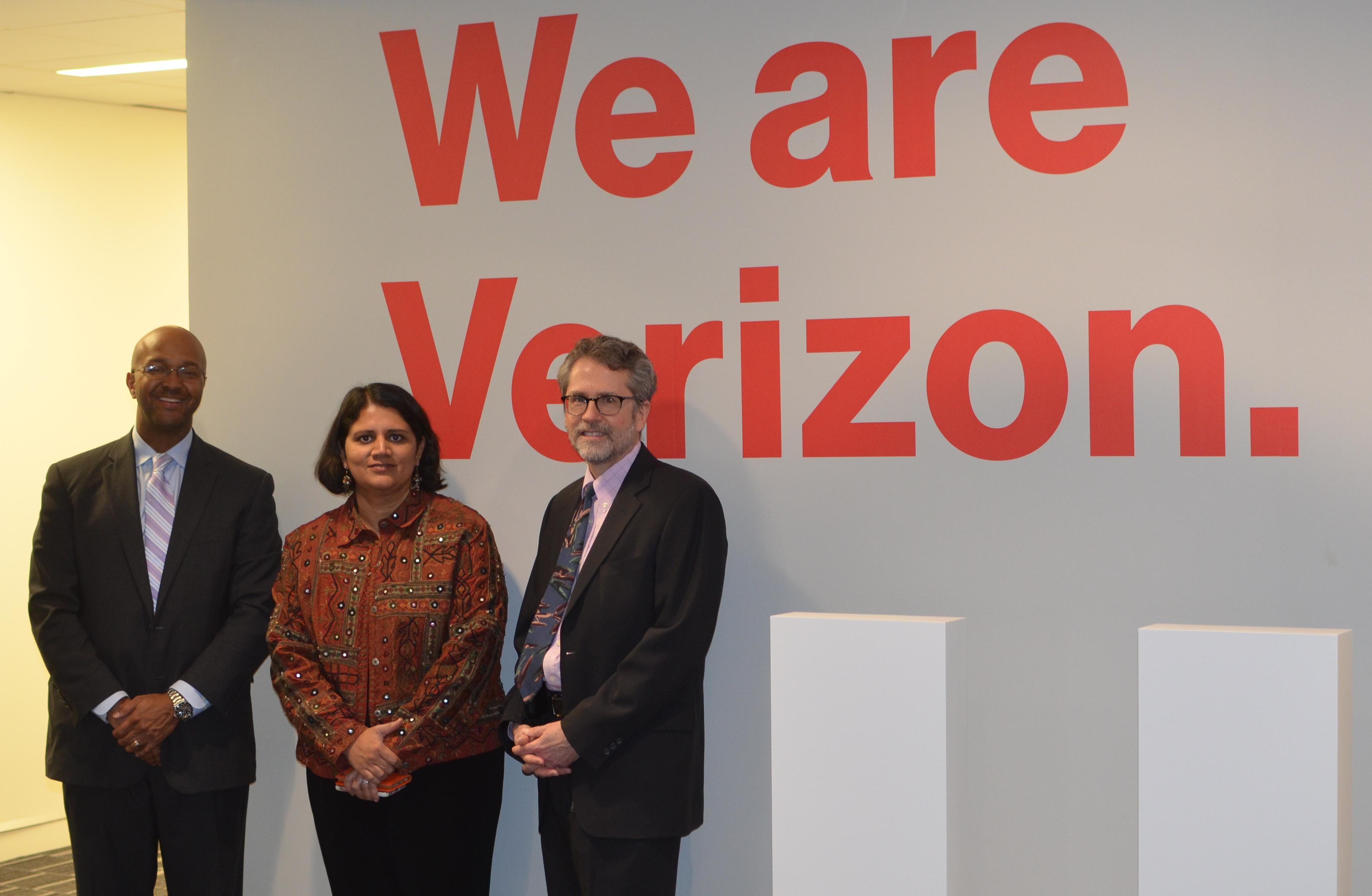Applying Lean Principles to Yield Purposeful Contracting
By Jennifer J. Salopek
The goal of Verizon Legal's Purposeful Contracting initiative was simple: to take the best of current thinking in technology and process improvement—simplicity, clarity, and efficiency—and apply it to contracting. This is not an easy challenge for a large global multinational company that contracts with large, multinational companies and governments for services that are complex, critical, and specialized. But it was its challenging nature that made this project attractive to Verizon lawyers Woodrow ("Woody") Jones and John Veilleux.
Woodrow "Woody" Jones, Vandana Venkatesh, and John Veilleux
"Contracting had been a challenge for years," Jones says. "Complexity had crept in, and costs increased with the complexity of the content and the length of the process. As lead time increased, customer satisfaction decreased."
Jones, who spent two years working on a Lean/Six Sigma business transformation initiative, endorsed a data-centric approach to understand its customers. The resulting multi-year initiative would reposition contracting as a competitive advantage to the business. The initiative has two main parts aimed at transforming Service Terms and Global Master Terms. Launched in January 2016, the project is projected to help cut contract negotiation time in half and to yield savings of more than $12 million. "Transforming our customers' contracting experience is the right thing to do for our customers, our employees, and our shareholders," says Vandana Venkatesh, Senior Vice President and General Counsel of Verizon Enterprise Solutions.
Veilleux, an Associate General Counsel, who had significant prior experience implementing contracting and automation processes, partnered with Jones to design the project. They tackled Service Terms first, seeking to simplify the descriptions and terms for the top revenue-generating Verizon products and services. Discovering that there were nearly 100 different provisions in the Service Terms, they collaborated with colleagues in finance, product marketing, and regulatory areas to reduce page content by more than 70 percent.
The team followed a four-part process:
- Sort: Disassemble service terms in all customer-facing documents.
- Straighten: Separate and prioritize terms based on a small set of criteria.
- Shine: Make the decision to remove, relocate, or revise the remaining terms.
- Standardize: Re-organize terms using a standard structure.
Compiling more than 1,000 line items into an Excel spreadsheet over three years, the team took a hybrid approach to testing new terms. "In many respects, it wasn't a guess," Veilleux says. Using Lean change management techniques to get consensus from other departments, sell the value proposition, and notch up quick wins, he ensured positive adoption within the company. The team made presentations that explained why the legal department was conducting the project and what changes to expect.
The team also reviewed the terms with customers. "Feedback from customers indicates that the new terms and conditions feel more like technology-company terms and less like those of a legacy telecommunications company. This was a major win for the legal department," Veilleux says.
That success helped the team get buy-in for the Global Master Terms transformation project, which took over a year and represented "a magnitude of difference," Veilleux says. Verizon Enterprise Solutions operates in more than 70 countries around the world and must be compliant with a dizzying number of local legal and regulatory requirements. Nine different master contracts had been generated by the divergent, and somewhat fragmented, regions. Far from being overwhelmed by the project, the team approached it with the philosophy, "Big problems are just smaller problems stuck together."
They coordinated with attorneys on five continents representing all those countries, collaborating via two-hour conference calls, twice a week, for more than a year. Again, a data-driven approach informed the process, as the team used data from the International Association for Contract and Commercial Management to learn what terms are most likely to contribute to contract disputes. They also reached out to the litigation department to talk about risk from a shareholder perspective.
The company will soon roll out a single, eight-page global contract that works across all Verizon services, for all customers, in all geographies. Its new master service agreement framework features a contract with a simple narrative structure:
- what we offer and how we offer it
- how you can buy it and for how long
- here are our collective remedies for non-performance
"Previously, contracts were a melting pot of ideas," Jones says. For the transformation, they took a different tack: Be Your Customer. "Understanding why customers were coming to Verizon creates a better narrative and a different emotional experience for the customer."
